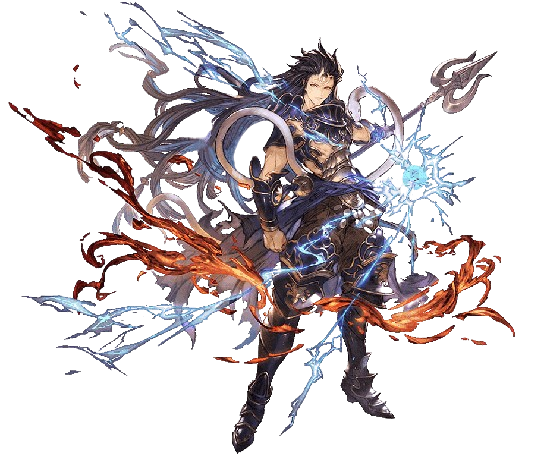Introduction
The world of online gaming has undergone a remarkable transformation in the past few decades, and one of the key drivers of this change is the rise of fantasy games. From role-playing epics to team-based multiplayer experiences, fantasy games are revolutionizing the online multiplayer gaming landscape in ways previously unimaginable. What was once a niche genre with a dedicated, albeit small, following has exploded into a cultural phenomenon, engaging millions of players around the globe. The rise of fantasy game development companies has played a crucial role in this transformation. These companies, along with their fantasy game development services, have been pushing the boundaries of what is possible in multiplayer experiences.
This article will explore how fantasy games, led by innovative fantasy game development agencies, are shaping the future of online multiplayer experiences, offering a mix of innovation, immersion, and collaboration.
Boost Your Fantasy Game Efficiency

Immersive Worlds and Deep Lore: The Core of Fantasy Games
Fantasy games thrive on immersion, and this is where they excel in the online multiplayer space. Unlike other multiplayer genres that focus on realism, fantasy games allow players to escape into rich, imaginative worlds filled with mythical creatures, magical spells, and ancient lore. The ability to lose oneself in a fantasy universe and, even better, do it with other players, is what makes these games so compelling. Fantasy game developers are consistently pushing the envelope to create more engaging and immersive experiences.
For example, The Elder Scrolls Online allows players to explore Tamriel, a world filled with dragons, elves, and a rich history that spans thousands of years. Players can join factions, participate in massive battles, and engage with the deep lore that gives meaning to their actions within the game. This level of immersion is a hallmark of what many fantasy game development companies aim to achieve with their products, ensuring players feel fully absorbed in the universe they’re exploring.
This shared narrative experience is at the core of what makes fantasy games so appealing in an online multiplayer setting. Unlike games that focus on one-off matches or rounds, fantasy games often involve long-term engagement with a world and its lore. Players feel a sense of belonging and purpose within these digital universes, which fosters community and cooperation, something fantasy game development services prioritize to create lasting player experiences.
Collaboration and Teamwork in Fantasy Multiplayer Games
A key aspect of online multiplayer experiences in fantasy games is the emphasis on teamwork and collaboration. In many fantasy games, players must work together to defeat powerful bosses, conquer dungeons, or complete difficult quests. This element of cooperative gameplay sets fantasy games apart from other genres, where competition often takes center stage.
Take Final Fantasy XIV, for instance. This MMORPG requires players to team up for raids, where they must strategize and coordinate to take down massive, intimidating enemies. Each player has a specific role, such as healer, tank, or DPS (damage per second), and the success of the raid depends on everyone performing their duties. This collaborative aspect fosters a strong sense of camaraderie among players, as victories are achieved through teamwork and communication.
Additionally, the reliance on teamwork extends beyond gameplay mechanics to social interactions. Many multiplayer fantasy games encourage the formation of guilds or clans, where players can form long-term relationships, share resources, and coordinate activities. These social structures add another layer of depth to the multiplayer experience, transforming it from a series of isolated gameplay sessions into a rich, ongoing social experience. Fantasy game development services often focus on integrating these social mechanics into their projects to boost community engagement and player retention.
Jump Into Action: Start Fantasy Game Project

Innovations in Gameplay Mechanics
One of the ways fantasy games are revolutionizing online multiplayer experiences is through innovative gameplay mechanics. Many fantasy games introduce complex systems that require players to think strategically and engage with their surroundings in unique ways. Fantasy game development companies are constantly striving to introduce new mechanics that keep players engaged.
For example, in Divinity: Original Sin 2, a cooperative RPG, players are given unprecedented freedom to interact with the game world. The game allows players to manipulate elements like fire, water, and electricity to create dynamic battle scenarios. This high level of interaction adds a tactical layer to the multiplayer experience, as players must coordinate their abilities and spells to overcome challenging enemies. Fantasy game development agencies have played a significant role in bringing this level of depth to modern games.
Another innovative aspect is the focus on player choice and consequence. Many fantasy games allow players to make decisions that impact the game world, often creating branching narratives. In multiplayer settings, these decisions can influence not only the player’s experience but also that of their teammates. This level of agency makes multiplayer fantasy games feel more personal and engaging, as players navigate a world that reacts to their choices. Fantasy game development companies are keen to create these branching storylines that cater to player agency and diversity in outcomes.

Player Versus Player (PvP) and Competitive Fantasy Gaming
While collaboration is a key feature of multiplayer fantasy games, player-versus-player (PvP) combat is also an important aspect that adds excitement and variety. PvP modes allow players to test their skills against one another in a controlled environment, often with high stakes and rewards.
Games like Guild Wars 2 and The Elder Scrolls Online offer massive PvP battles, where hundreds of players can clash in epic confrontations. These large-scale battles require not only individual skill but also strategic coordination among teams or factions. PvP adds a competitive edge to fantasy games, attracting players who enjoy the thrill of combat and competition. Fantasy game development agencies are constantly innovating in the area of PvP to enhance the competitive elements of their games.
Fantasy games also introduce innovative PvP mechanics that differ from traditional shooters or action games. Magic, stealth, and unique character abilities are often central to these confrontations, allowing for diverse and creative combat strategies. This variety in combat keeps PvP modes fresh and exciting, as no two battles are ever the same.
Fantasy Games and Esports
While fantasy games are often associated with narrative-driven experiences, some have made significant strides in the world of esports. Competitive gaming has traditionally been dominated by genres like first-person shooters and MOBAs, but fantasy-themed games are carving out their own space in this arena.
Games like Smite and League of Legends, both of which draw heavily from fantasy elements, have become staples of the esports scene. These games combine fast-paced action with deep strategic elements, making them ideal for competitive play. Fantasy game developers have successfully adapted these elements for large-scale tournaments and professional competitions.
The rise of fantasy games in esports demonstrates the genre’s versatility. While many fantasy games focus on cooperative, narrative-driven experiences, there is also room for highly competitive, skill-based play. This duality has broadened the appeal of fantasy games, attracting both casual and competitive players alike.
The Future of Fantasy Games in Online Multiplayer
As technology continues to advance, the future of fantasy games in online multiplayer looks incredibly promising. Virtual reality (VR) and augmented reality (AR) are poised to take multiplayer fantasy experiences to new heights, offering even deeper immersion and interaction.
Imagine exploring a fantasy world in VR, where players can physically interact with their surroundings and cast spells with hand gestures. Games like The Elder Scrolls V: Skyrim VR and Asgard’s Wrath are already pushing the boundaries of what is possible in this space, and future developments in VR technology will only enhance these experiences. Fantasy game development services are already exploring how to incorporate these new technologies into the next generation of online multiplayer games.
Moreover, the rise of cloud gaming services like Google Stadia and Xbox Cloud Gaming will make it easier than ever for players to access and participate in multiplayer fantasy games. These platforms remove the need for expensive hardware, allowing more players to join the fun regardless of their device or location. Fantasy game development companies are quick to adopt cloud gaming to broaden their player base.
Cross-Platform Play and Inclusivity
Another exciting trend in the world of multiplayer fantasy games is cross-platform play. Historically, players have been confined to gaming with others on the same platform, whether it be PC, console, or mobile. However, recent advances in cross-platform compatibility have begun to break down these barriers, allowing players to connect and compete across different devices.
Games like Fortnite and Genshin Impact have embraced this model, allowing players on PC, consoles, and mobile devices to play together seamlessly. This inclusivity is revolutionizing the multiplayer experience by expanding the potential player base and making it easier for friends to team up, regardless of their chosen platform.
In addition to cross-platform play, many fantasy games are placing a greater emphasis on inclusivity and accessibility. Game developers are working to ensure that their titles are accessible to players of all abilities and backgrounds, incorporating features like customizable controls, adjustable difficulty levels, and detailed tutorials. This push for inclusivity ensures that more players can enjoy the magic of fantasy worlds and engage with online multiplayer experiences.

Conclusion
Fantasy games are not just a form of escapism; they are a driving force in the ongoing revolution of online multiplayer experiences. By offering rich, immersive worlds, encouraging teamwork and collaboration, and introducing innovative gameplay mechanics, these games are reshaping how players interact with each other in virtual spaces. Fantasy game development companies are leading this charge, pushing the boundaries of multiplayer gaming. As technology continues to evolve, these fantasy game development services will play a critical role in shaping the future of online gaming.
With the continued advancement of technology, fantasy games are set to push the boundaries of what is possible in online multiplayer gaming, offering players even more ways to connect, compete, and cooperate in fantastical settings. The journey has only just begun, and the magic of fantasy games is sure to captivate players for years to come.



